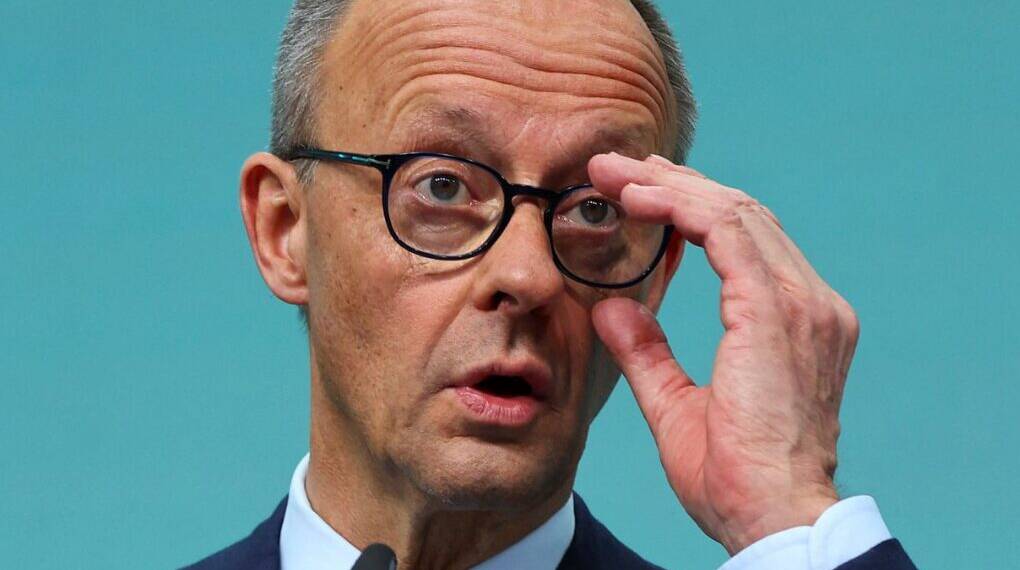In one of his most forceful statements since taking office, German Chancellor Friedrich Merz declared that Ukraine’s ongoing resistance is all that stands between Europe and a new wave of Russian expansionism.
His remarks, delivered during a high-level foreign policy forum in Berlin, have resonated across the continent, reaffirming Germany’s stance that any peace built on Ukraine’s surrender would be both temporary and dangerous.
“This war could be ended within 24 hours if Ukraine stopped fighting and handed the country over to Russia,” Merz said. “But then we can be quite certain that the next country would be attacked by Russia tomorrow.”
With these words, Merz made it clear that the war in Ukraine is not a local conflict but a continental battle over freedom, sovereignty, and the rules-based international order that has kept Europe largely peaceful since the end of World War II.
Merz’s Warning: A Message to the West
The Chancellor’s comments came amid growing global fatigue over the prolonged conflict. Several political figures in Europe and the United States have recently suggested that Kyiv should consider “difficult compromises” to end the bloodshed. But Merz rejected such proposals outright, warning that yielding to Russia’s aggression would not bring peace — only a brief pause before the next invasion.
“Every time the West has tried to appease an aggressor, we’ve paid a heavier price later,” Merz noted. “Peace cannot come through surrender. Peace can only come when the aggressor understands that the cost of war outweighs its rewards.”
He reminded the audience that Ukraine’s war is not just about territory — it is about defending the principles of sovereignty, democracy, and the right of nations to choose their own destiny.
Europe’s Responsibility and Germany’s Role
Chancellor Merz’s government has faced internal debates over the scale and speed of military aid to Ukraine. While Germany remains one of Kyiv’s largest supporters, providing advanced weaponry, air defense systems, and humanitarian assistance, Merz’s statement appeared aimed at silencing critics within his coalition who have expressed concern over the war’s economic toll on Europe.
“Supporting Ukraine is not charity,” Merz said. “It is a strategic necessity. If Ukraine falls, the frontline will move closer — to the borders of Poland, to the Baltics, to Central Europe. And then we will pay a much higher price — in blood and security.”
German defense analysts have echoed this view, noting that Moscow has already increased its military presence in Belarus and Kaliningrad and has been conducting cyber and disinformation campaigns targeting European states. The fear, they say, is that a victorious Russia would feel emboldened to test NATO’s unity and deterrence capabilities.
Echoes of History
Observers have drawn parallels between Merz’s remarks and the lessons of the 1930s, when Western powers underestimated expansionist regimes. The Chancellor himself invoked history during his speech, alluding to the consequences of appeasement that led to World War II.
“The lesson of the past century is simple: when tyranny is rewarded, tyranny grows stronger,” Merz said. “Ukraine is fighting the same battle our grandparents fought — against domination and fear. To abandon them now would be to betray the very ideals that built modern Europe.”
This historical framing struck a chord with European leaders who have long feared that a weakened Western response could lead to a repeat of the catastrophic mistakes of the past.
Ukraine’s Fight, Europe’s Future
Merz emphasized that the defense of Ukraine is inseparable from the defense of Europe itself. He praised Ukrainian resilience and reiterated that Berlin will continue providing military aid, training, and logistical support.
He also called for greater unity within the European Union, urging nations to overcome political fatigue and focus on the larger picture: “If Ukraine stands, Europe stands. If Ukraine falls, Europe will face a future of instability, blackmail, and fear.”
Merz’s government is reportedly preparing a new aid package that includes advanced air-defense systems and expanded financial assistance to help Ukraine rebuild critical infrastructure damaged by Russian strikes.
A Defining Moment for the West
Chancellor Merz’s words come at a defining moment for transatlantic relations. With political transitions underway in the United States and divisions deepening within NATO over defense spending and strategy, his message was clear — Europe must be ready to take more responsibility for its own security.
“This war will test whether we have learned from history,” Merz concluded. “We can either stand firm and preserve the freedom that generations before us fought for, or we can give in — and watch the darkness spread again across our continent.”
Friedrich Merz’s warning is more than rhetoric — it is a call to action. His message resonates with the fundamental truth that peace through strength is the only language aggressors understand. The war in Ukraine, as Merz insists, is not a distant fight but the first line of defense for Europe’s democratic order.
By declaring that “if Ukraine surrenders today, Russia will attack another country tomorrow,” Merz not only defined the stakes of the conflict — he reminded the world that the price of freedom is eternal vigilance.








